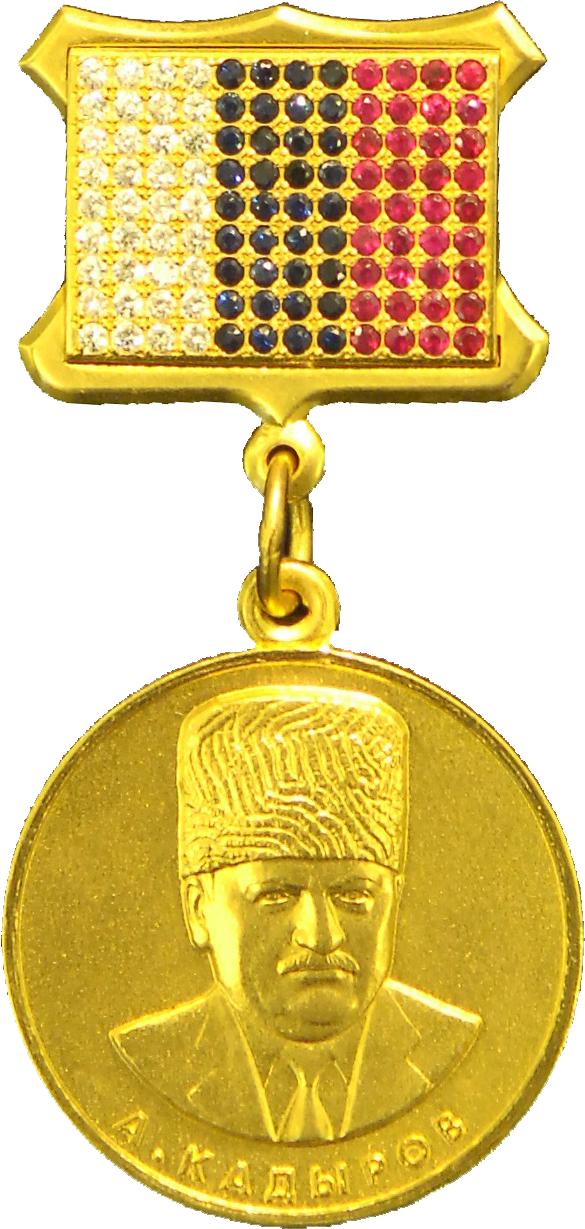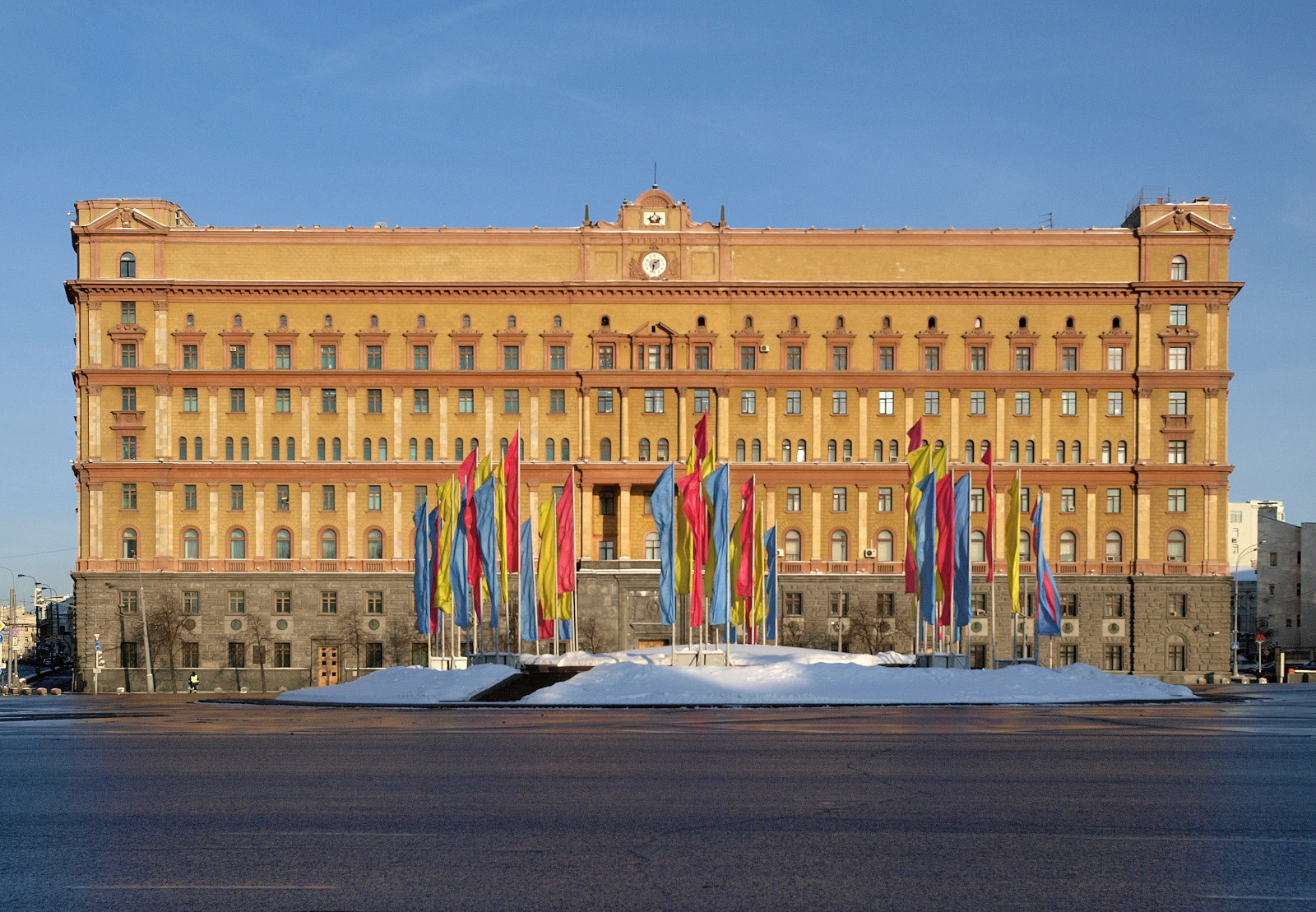|
Musa Muradov
Musa Kaimovich Muradov (; born 1958, in Grozny, Russia) is an ethnic Chechen Russian journalist. In 2003, he was awarded the International Press Freedom Award of the Committee to Protect Journalists for his reporting on the Second Chechen War. Background Muradov was born around 1958 in Grozny. He studied journalism at Moscow State University, graduating in 1982. He then joined the staff of '' Groznensky Rabochy'', a weekly newspaper in Grozny that had been established in 1917. After the dissolution of the Soviet Union in 1991, Muradov became the paper's editor-in-chief. Initially, the newspaper, formerly controlled by the Communist Party, was independent. However, in 1993 Dzhokar Dudayev, president of Chechnya's new, unrecognized secessionist government, attempted to convert the paper into an official publication of his party. In reaction, Muradov and most of his staff quit, leading the newspaper to shut down. Muradov found work for a time teaching journalism at a local ... [...More Info...] [...Related Items...] OR: [Wikipedia] [Google] [Baidu] |
Grozny
Grozny ( rus, Грозный, p=ˈgroznɨj; ce, Соьлжа-ГӀала, translit=Sölƶa-Ġala), also spelled Groznyy, is the capital city of Chechnya, Russia. The city lies on the Sunzha River. According to the 2010 census, it had a population of 271,573 — up from 210,720 recorded in the 2002 census, but still only about two-thirds of 399,688 recorded in the 1989 census. It was previously known as (until 1870). Names In Russian, "Grozny" means "fearsome", "menacing", or "redoubtable", the same word as in Ivan Grozny ( Ivan the Terrible). While the official name in Chechen is the same, informally the city is known as "" (""), which literally means "the city () on the Sunzha River ()". In 1996, during the First Chechen War, the Chechen separatists renamed the city Dzhokhar-Ghala ( ce, Джовхар-ГӀала, Dƶovxar-Ġala), literally Dzhokhar City, or Dzhokhar/Djohar for short, after Dzhokhar Dudayev, the first president of the Chechen Republic of Ichker ... [...More Info...] [...Related Items...] OR: [Wikipedia] [Google] [Baidu] |
Supian Ependiyev
Supian Ependiyev was a veteran correspondent for the independent Chechen weekly ''Groznensky Rabochy'', who was killed while covering a Russian Ground Forces ballistic missile attack on the Chechen capital, Grozny. On the evening of October 27, 1999, several short-range ballistic missiles hit a crowded outdoor market in central Grozny, killing or wounding hundreds of people, mostly civilians. About an hour after the attack, Ependiyev went to the scene to cover the carnage for his paper. Nevertheless, as he was leaving the site, a new round of Scud missiles fell about 200 meters from the bazaar. Ependiyev suffered severe shrapnel wounds and died in a Grozny hospital the next morning. (According to other sources, he died two days later.) Ependiyev was the first journalist to be killed while covering the Second Chechen War. During the First Chechen War twenty journalists were killed. The Committee to Protect Journalists protested the death of Supian Ependiyev in an open letter to ... [...More Info...] [...Related Items...] OR: [Wikipedia] [Google] [Baidu] |
Akhmed Zakayev
Akhmed Halidovich Zakayev ( ce, Заки Хьалид кlант Ахьмад, Zaki Halid-khant Ahmad; russian: Ахмед Халидович Закаев, Akhmed Khalidovich Zakayev; born 26 April 1959) is a former Deputy Prime Minister and Prime Minister of the unrecognised Chechen Republic of Ichkeria (ChRI). He was also the Foreign Minister of the Ichkerian government, appointed by Aslan Maskhadov shortly after his 1997 election, and again in 2006 by Abdul Halim Sadulayev. During the First Chechen War, Zakayev took part in the battles for Grozny and other military operations, as well as in high-level negotiations with the Russian side. In 2002, Russia accused him, by then in exile, of having been involved in a series of crimes including involvement in acts of terrorism.UK actress defends Chechen rebel , |
Ramzan Kadyrov
Ramzan Akhmadovich Kadyrov ce, КъадаргӀеран Ахьмат-кӏант Рамзан, translit= (born 5 October 1976) is a Russian politician who currently serves as the Head of the Chechen Republic. He was formerly affiliated to the Chechen Independence movement, through his father who was the separatist appointed mufti of Chechnya. He is a colonel general in the Russian military. Kadyrov is the son of former Chechen President Akhmad Kadyrov, who switched sides in the Second Chechen War by offering his service to Vladimir Putin's administration in Russia and became Chechen president in 2003. Akhmad Kadyrov was assassinated in May 2004. In February 2007, Ramzan Kadyrov replaced Alu Alkhanov as president, shortly after he had turned 30, which is the minimum age for the post. He was engaged in violent power struggles with Chechen commanders Sulim Yamadayev (d. 2009) and Said-Magomed Kakiyev for overall military authority, and with Alkhanov for political authority. Si ... [...More Info...] [...Related Items...] OR: [Wikipedia] [Google] [Baidu] |
Politics Of Chechnya
The Republic of Chechnya is a constituent republic, a federal subject of the Russian Federation. It is located in the Caucasus region in south west Russia. It is the political successor of the Checheno-Ingush Autonomous Soviet Socialist Republic. From a centralized form of government during the existence of the Soviet Union, the republic's political system went upheavals during the 1990s with the unrecognized establishment of the Chechen Republic of Ichkeria which led to the wars, the First Chechen War and the Second Chechen War which left the republic in total devastation. In 2000, following Russia's renewed rule, a local, republican form of government was established in the republic under the control of the Russian federal government. Political background In November 1990, the first Chechen National Congress was convened. It was an opposition movement headed by Major-General Dzhokhar Dudayev. In March 1991, the Supreme Soviet refused to take part in the All-Russian referendum ... [...More Info...] [...Related Items...] OR: [Wikipedia] [Google] [Baidu] |
Sharia Law
Sharia (; ar, شريعة, sharīʿa ) is a body of religious law that forms a part of the Islamic tradition. It is derived from the Five Pillars of Islam, religious precepts of Islam and is based on the Islamic holy books, sacred scriptures of Islam, particularly the Quran and the Hadith. In Arabic, the term ''sharīʿah'' refers to God in Islam, God's immutable divine law and is contrasted with ''fiqh'', which refers to its human scholarly interpretations. In the historical course, fiqh sects have emerged that reflect the preferences of certain societies and state administrations on behalf of people who are interested in the Principles of Islamic jurisprudence, theoretical (method) and practical application (Ahkam / fatwa) studies of laws and rules, but sharia has never been a valid legal system on its own. It has been used together with "customary law, customary (Urf) law" since Omar or the Umayyads. It may also be wrong to think that the Sharia, as a religious argument or b ... [...More Info...] [...Related Items...] OR: [Wikipedia] [Google] [Baidu] |
Wahhabi
Wahhabism ( ar, ٱلْوَهَّابِيَةُ, translit=al-Wahhābiyyah) is a Sunni Islamic revivalist and fundamentalist movement associated with the reformist doctrines of the 18th-century Arabian Islamic scholar, theologian, preacher, and activist Muhammad ibn Abd al-Wahhab (). He established the ''Muwahhidun'' movement in the region of Najd in central Arabia as well as South Western Arabia, a reform movement that emphasised purging of rituals related to the veneration of Muslim saints and pilgrimages to their tombs and shrines, which were widespread amongst the people of Najd. Ibn ʿAbd al-Wahhab and his followers were highly inspired by the influential thirteenth-century Hanbali scholar Ibn Taymiyyah (1263–1328 C.E/ 661 – 728 A.H) who called for a return to the purity of the first three generations (''Salaf'') to rid Muslims of inauthentic outgrowths (''bidʻah''), and regarded his works as core scholarly references in theology. While being influenced by their ... [...More Info...] [...Related Items...] OR: [Wikipedia] [Google] [Baidu] |
Ministry Of Internal Affairs
An interior ministry (sometimes called a ministry of internal affairs or ministry of home affairs) is a government department that is responsible for internal affairs. Lists of current ministries of internal affairs Named "ministry" * Ministry of Internal Affairs (Adygea) * Ministry of Interior Affairs (Afghanistan) * Ministry of Internal Affairs (Albania) * Ministry of Internal Affairs (Altai Republic) * Ministry of the Interior (Argentina) * Ministry of the Interior (Austria) * Ministry of Internal Affairs (Azerbaijan) * Ministry of Interior (Bahrain) * Ministry of Home Affairs (Bangladesh) * Ministry of Public Administration (Bangladesh) * Ministry of Internal Affairs (Bashkortostan) * Ministry of Internal Affairs (Belarus) * Ministry of Home Affairs (Bermuda) * Ministry of Home and Cultural Affairs (Bhutan) * Federal Ministry of Interior (Federation of Bosnia and Herzegovina) * Ministry of National Integration (Brazil) * Ministry of Home Affairs (Brunei) * Ministry of Inte ... [...More Info...] [...Related Items...] OR: [Wikipedia] [Google] [Baidu] |
Federal Security Service
The Federal Security Service of the Russian Federation (FSB) RF; rus, Федеральная служба безопасности Российской Федерации (ФСБ России), Federal'naya sluzhba bezopasnosti Rossiyskoy Federatsii, fʲɪdʲɪˈralʲnəjə ˈsluʐbə bʲɪzɐˈpasnəstʲɪ rɐˈsʲijskəj fʲɪdʲɪˈratsɨɪ) is the principal security agency of Russia and the main successor agency to the Soviet Union's KGB; its immediate predecessor was the Federal Counterintelligence Service (FSK) which was reorganized into the FSB in 1995. The three major structural successor components of the former KGB that remain administratively independent of the FSB are the Foreign Intelligence Service (SVR), the Federal Protective Service (FSO), and the Main Directorate of Special Programs of the President of the Russian Federation (GUSP). The primary responsibilities are within the country and include counter-intelligence, internal and border security, counter-terr ... [...More Info...] [...Related Items...] OR: [Wikipedia] [Google] [Baidu] |
Russian Military
The Armed Forces of the Russian Federation (, ), commonly referred to as the Russian Armed Forces, are the military forces of Russia. In terms of active-duty personnel, they are the world's fifth-largest military force, with at least two million reserve personnel. Their branches consist of the Ground Forces, the Navy, and the Aerospace Forces, as well as three independent arms of service: the Strategic Rocket Forces, the Airborne Forces, and the Special Operations Forces. In 2021, Russia had the world's fifth-highest military expenditure at . The Russian Armed Forces possess the world's largest stockpile of nuclear weapons. They operate the second-largest fleet of ballistic missile submarines, and are one of only three national militaries (alongside those of the United States and China) that operate strategic bombers. With certain exceptions, Russian law mandates one year of military service for all male citizens aged 18–27, though conscripts are generally not deplo ... [...More Info...] [...Related Items...] OR: [Wikipedia] [Google] [Baidu] |
Federal Subjects Of Russia
The federal subjects of Russia, also referred to as the subjects of the Russian Federation (russian: субъекты Российской Федерации, subyekty Rossiyskoy Federatsii) or simply as the subjects of the federation (russian: субъекты федерации, subyekty federatsii), are the constituent entities of Russia, its top-level political divisions according to the Constitution of Russia. Kaliningrad Oblast is the only federal subject geographically separated from the rest of the Russian Federation by other countries. According to the Russian Constitution, the Russian Federation consists of republics, krais, oblasts, cities of federal importance, an autonomous oblast and autonomous okrugs, all of which are equal subjects of the Russian Federation. Three Russian cities of federal importance (Moscow, Saint Petersburg, and Sevastopol) have a status of both city and separate federal subject which comprises other cities and towns (Zelenograd, Troitsk, ... [...More Info...] [...Related Items...] OR: [Wikipedia] [Google] [Baidu] |




